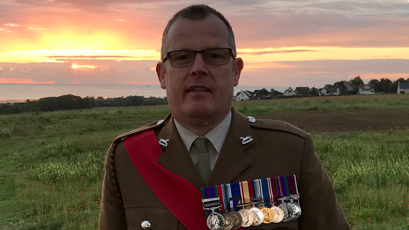'We always had cake after the sirens stopped'
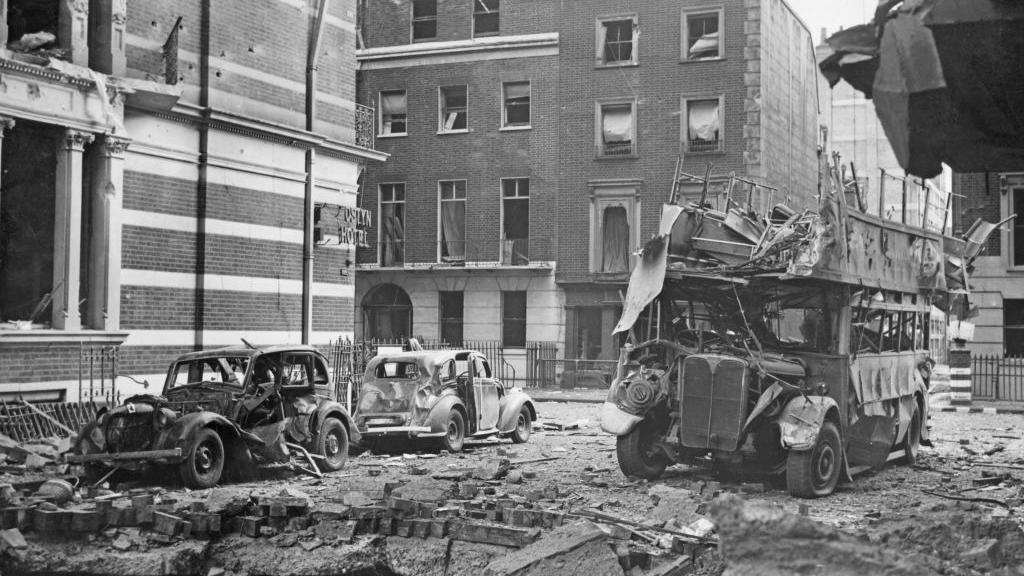
Three people have shared their memories of the Blitz in London
- Published
"Mum always made cake after the sirens ended."
That is Tony Fayers' overriding memory of the Blitz during World War Two.
"She always put on the kettle and she always had a scone or something so we could celebrate we survived," he said.
On Remembrance Day, residents of the Signature at Caversham care home in Berkshire have been sharing their memories of WW2 with the BBC.
'Scared out of my wits'
Julian Berrisford recalled seeing a dogfight - a battle between two planes - above his garden on "a very nice sunny day".
"I watched as these two fighters flew towards one another and they ended up having a collision," said the 91-year-old.
"The wreckage of the planes ended up a couple of fields away from where I was standing."
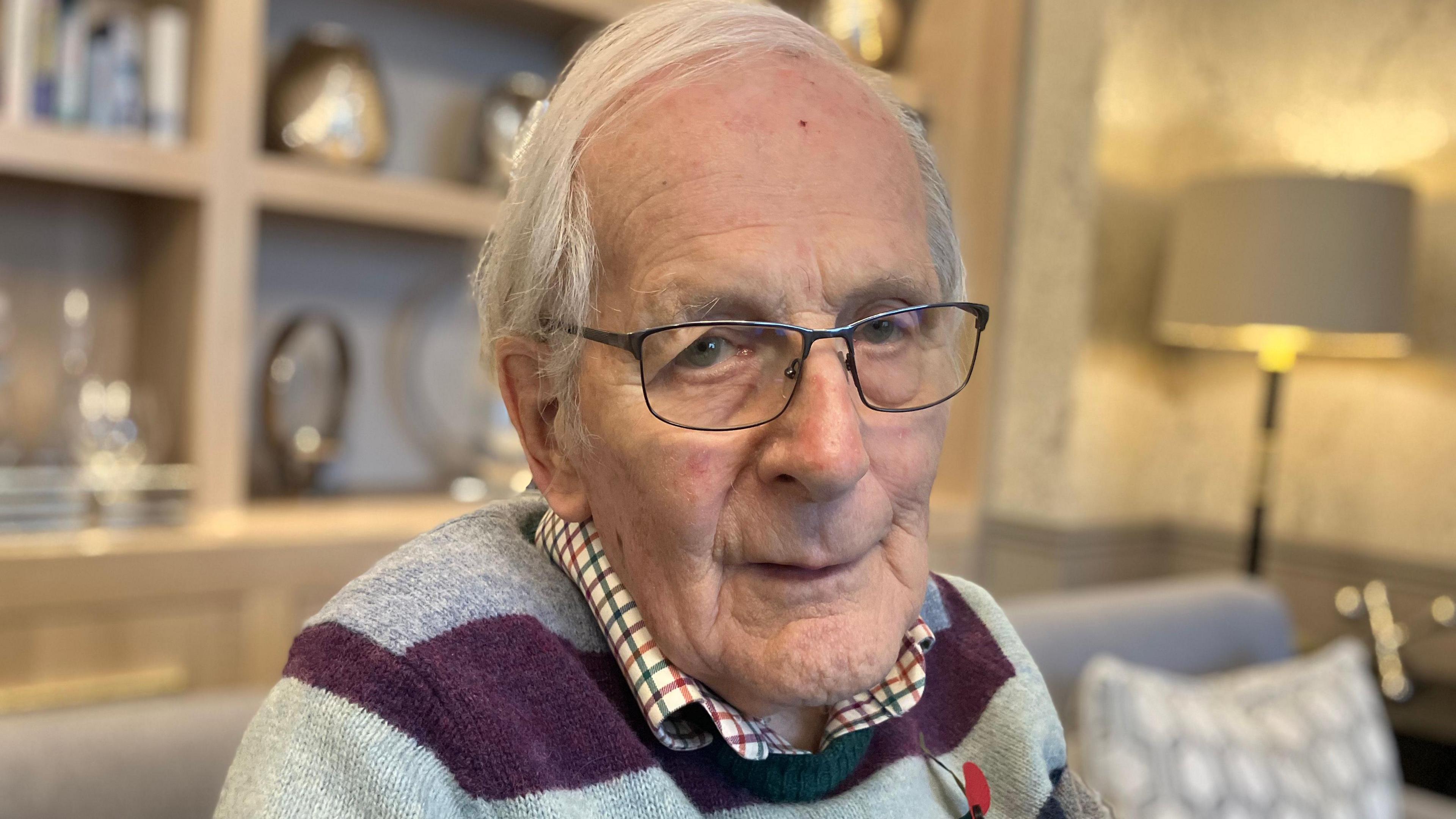
Mr Berrisford watched a dogfight above his garden
After the wreckage was recovered, he went "scouring in the field" and found some live ammunition - which he then took to school.
"[We] got into trouble because we were throwing them at one another and they were still live," he said.
'A dash for the table'
David North, 89, said he remembered making a "dash for the table" when he heard the sound of doodlebugs.
"I have many memories of the Blitz on London... mainly of the doodlebugs," he said.
"It was the rockets you could hear coming because they were fairly slow and your concern was when the sound stopped and you knew then that the rockets were coming down.
"So you made a dash for the table, or you made a dash to get out the way or seek shelter."
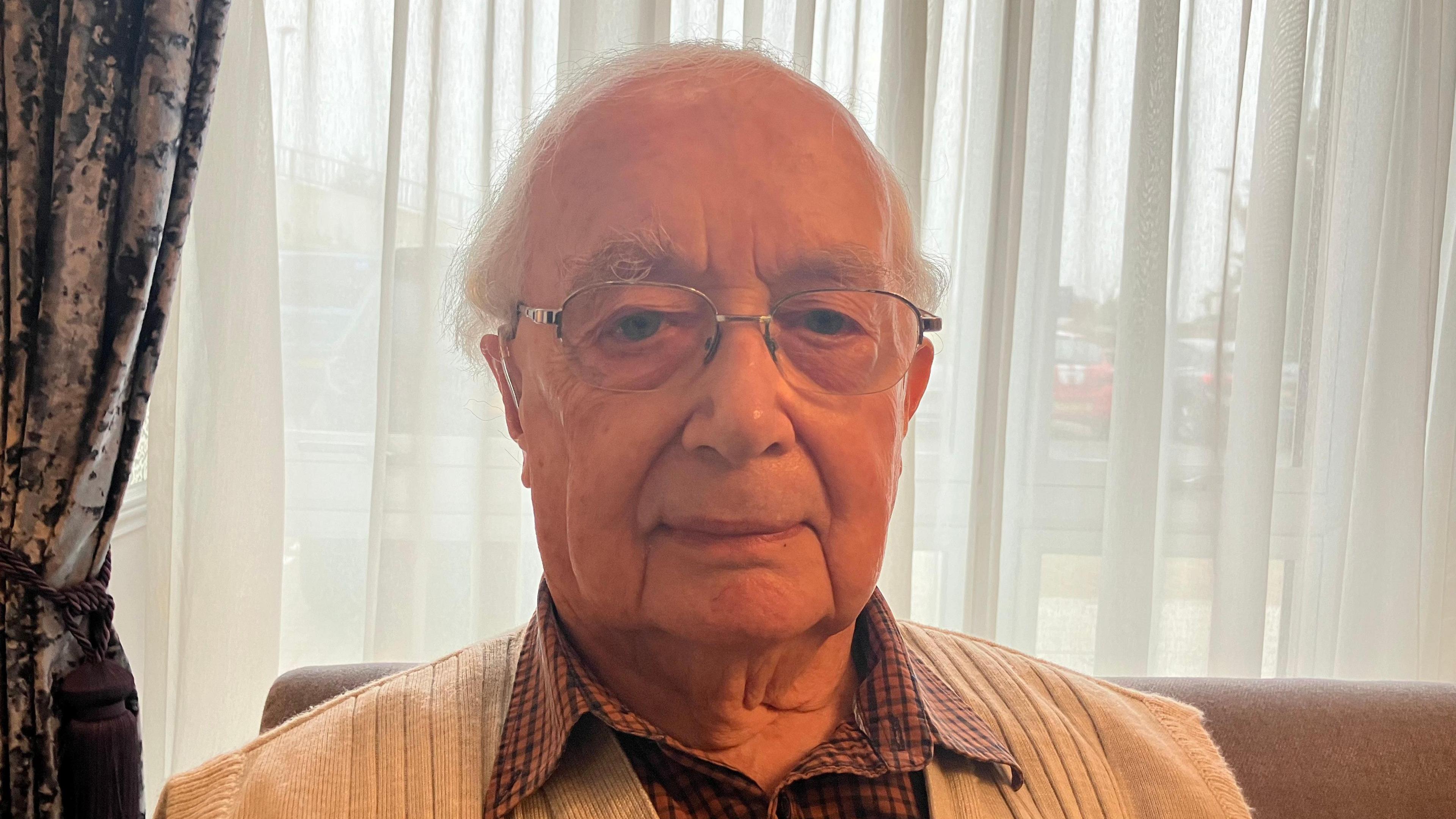
Mr North recalled the sound of the doodlebugs
He said he remembered relatives in their early twenties died in the war.
"I remember as a six-year-old child dashing under their bed when they were staying with us and when I came to ask 'where are they' a few months later I was told they weren't coming back," he said.
He said they were "most certainly" on his mind on Remembrance Day.
"There's so many people who gave their lives," he said.
"They gave their lives for us to be where we are now."
'Horrible sirens'
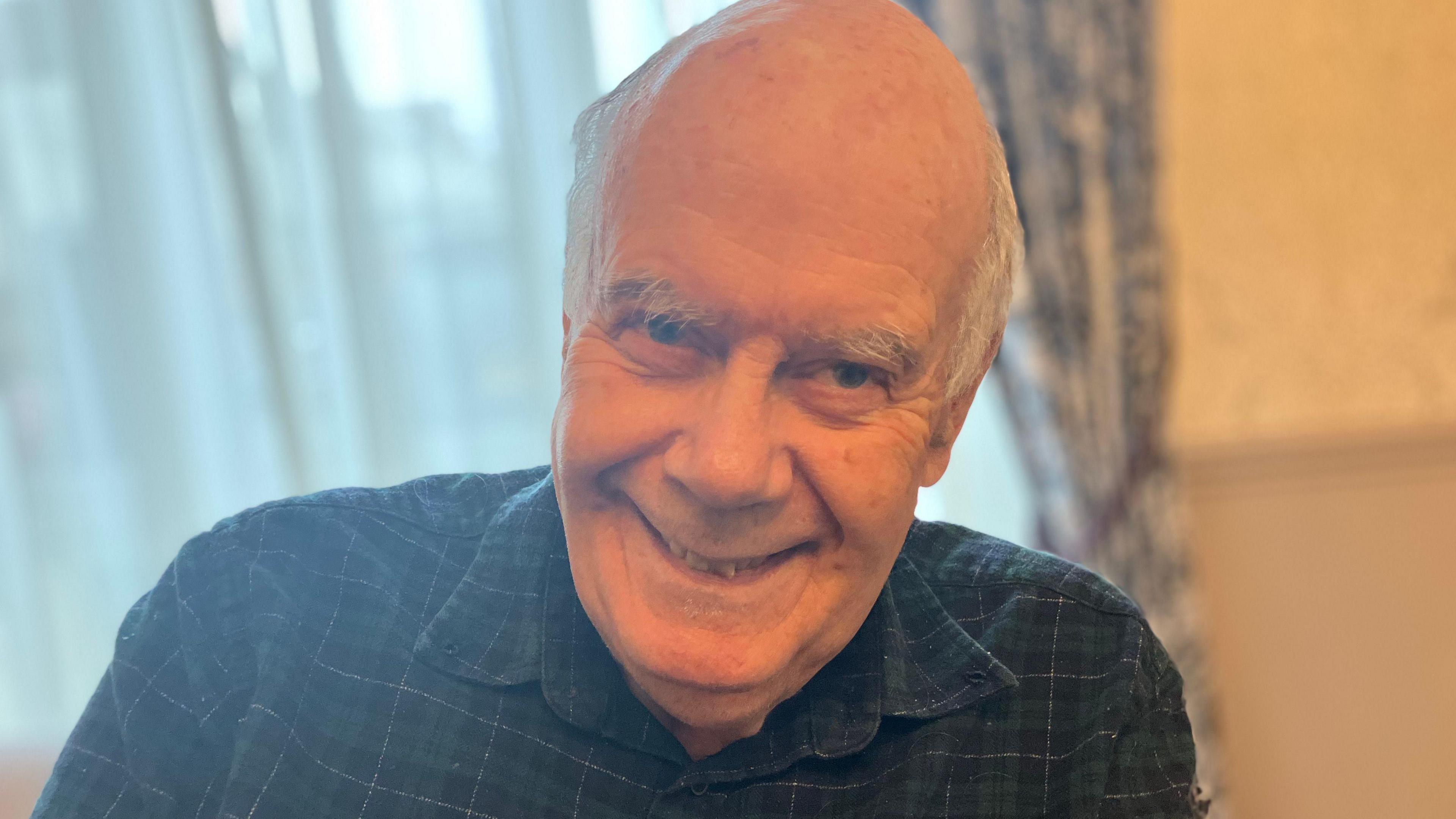
Mr Fayers said his mum would have tea and cake after each bombing
Mr Fayers said he and his family would hide under the kitchen table when there was a bombing.
"Which would have done a fat lot of good but that's what we did," said the 85-year-old.
He said, while he did not lose any relatives, WW2 was "very distressing" and Remembrance Day was very important.
"It's a good way of remembering what our friends and our relations and people we may or may not have known, what they did for the country," he said.
Get in touch
Do you have a story BBC Berkshire should cover?
You can follow BBC Berkshire on Facebook, external, X (Twitter), external, or Instagram, external.
Related topics
- Published8 November 2024
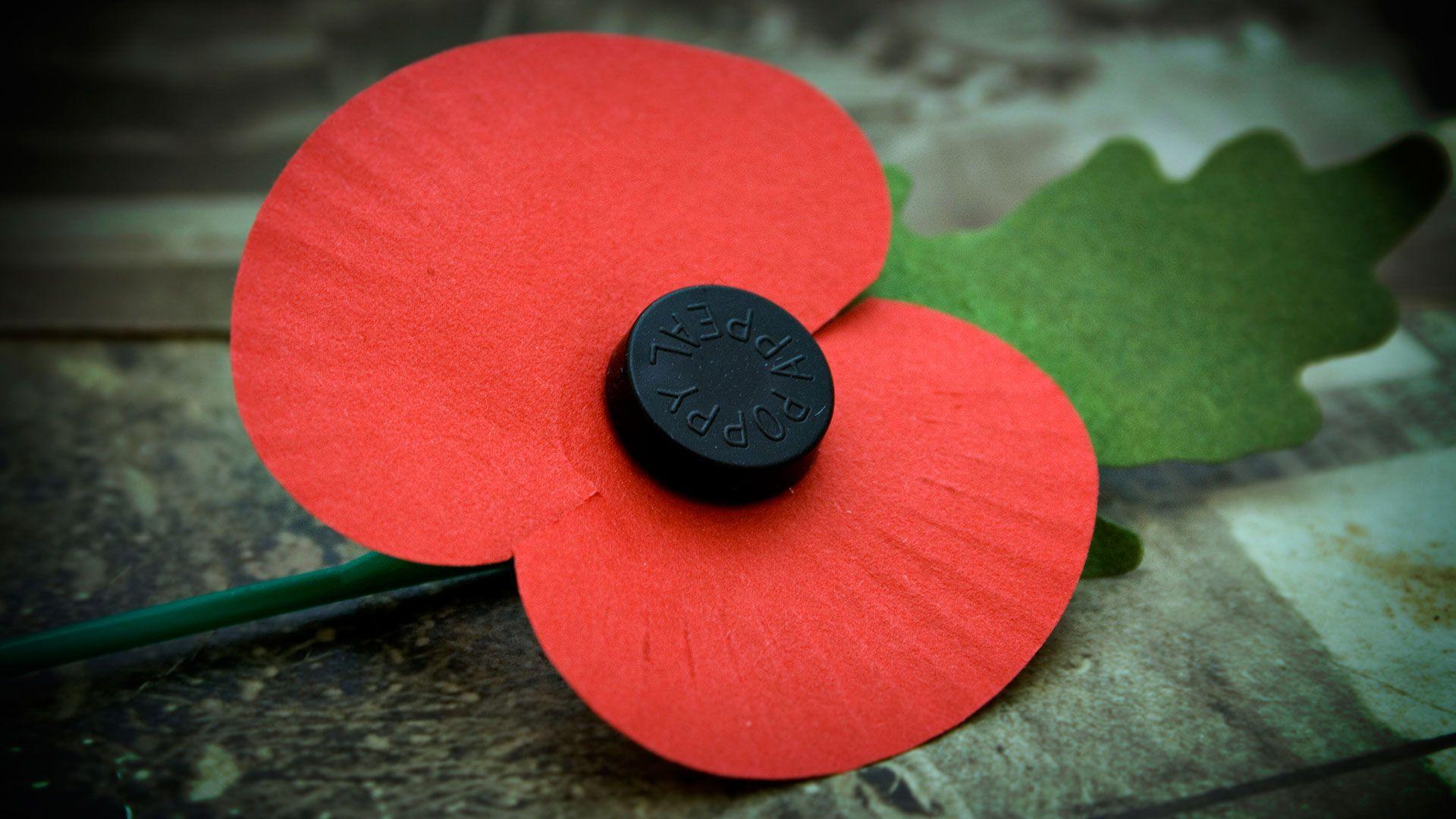
- Published8 November 2024
